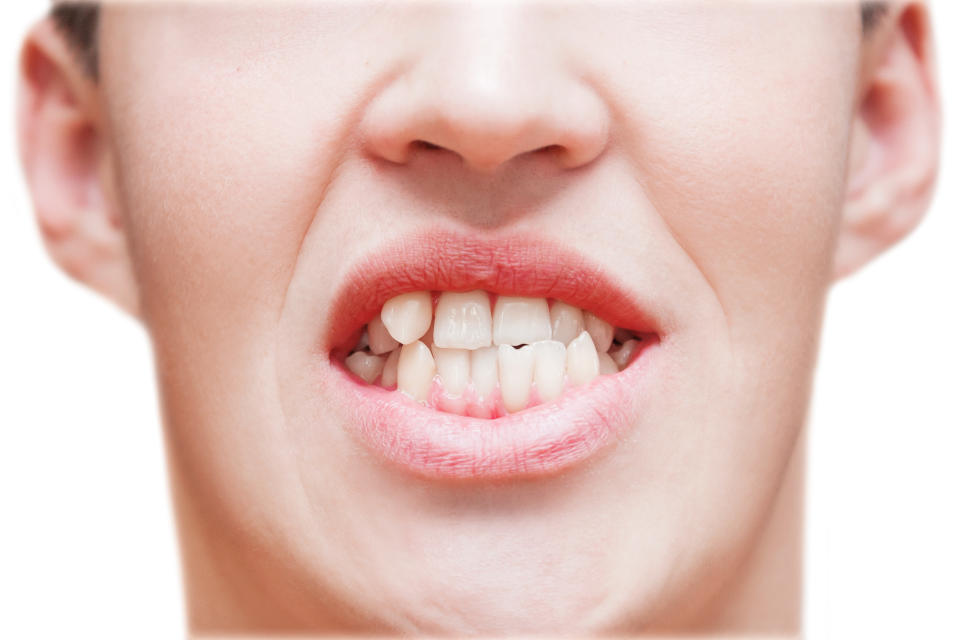Tooth decay is worse today than in the 17th century

Tooth decay is worse today than it was in the 17th Century, research suggests.
Scientists from Queen Mary University in London analysed the skulls of more than 200 adults, most of whom died 300 years ago.
READ MORE: Trendy charcoal toothpastes 'damaging' to teeth
They found the deceased had an average of nine missing or rotting teeth each.
This is compared to the 13.5 absent or decaying gnashers in the average Londoner’s mouth in 2013.
Even with advancing dental care, experts blame the rise in sugar consumption for escalating rates of tooth decay.
“Despite the lack of dental care in post-medieval times, the sampled population experienced less decay than the modern-day sample,” researcher and dentist Joseph Smith told The Times.
“Over the past 300 years sugar consumption in the UK has increased from 1.8kg (3.9lbs) to 23kg (50lbs) per person per year, with low-income groups [now] consuming the most.”
Nearly three in four (74%) adults in Britain have had a tooth removed, adding up to more than 60 million people, according to the Oral Health Foundation.
Sweet food and drinks, including pure fruit juices, are largely to blame.
Sugar interacts with bacteria in plaque to produce acid, according to Action on Sugar.
This then attacks enamel, causing it to slowly dissolve and create cavities.
Over time, these can develop into abscesses, with a decayed tooth potentially having to be removed.
READ MORE: Dentists urging schools to go sugar-free in a bid to tackle tooth decay
Children are also affected. A quarter of five-year-olds have tooth decay, with most having between three and four rotting teeth, according to Public Health England data from 2015.
With “the majority” of cases going untreated, 7,926 teeth had to be removed from children under five in hospital.
Among five-to-nine year olds, tooth extraction is the most common reason for hospitalisation, with around 141 undergoing the procedure every day, Government figures show.
The NHS recommends adults have no more than 30g (0.06lb) of “free sugar” a day.
This describes sugar which is added to food or drink, as well as that in honey, syrup, juice and smoothies.
Sugar found naturally in milk, or whole fruit and vegetables, do not count.
Children aged seven-to-10 should have no more than 24g (0.05lb) of free sugar a day, while those between four and six should have a maximum of 19g (0.04lb).
With no guidance for youngsters under four, the NHS recommends they avoid sugar-sweetened food and drink altogether.
READ MORE: 4 year-old-boy loses 18 teeth because of this common bad habit parents practice
While the data may be damning, the London scientists’ findings could still leave some scratching their heads.
The introduction of fluoride to toothpaste as early as 1914 is said to have revolutionised dental health.
Minerals within our enamel are lost every day as the bacteria in plaque produce acids that dissolve the outer layer of our teeth, according to Colgate.com
This process is balanced by remineralisation, where minerals in the saliva are deposited back into the enamel.
If the minerals are lost faster than they can be replaced, it results in tooth decay.
Fluoride helps to speed up the remineralisation process.
Queen Elizabeth I also had famously bad teeth. Confusingly, this was said to be due to the arrival of sugar during her Renaissance reign.
The monarch is said to have had black teeth, with so many falling out, foreign ambassadors struggled to understand her, The Telegraph reported.

 Yahoo Finance
Yahoo Finance 